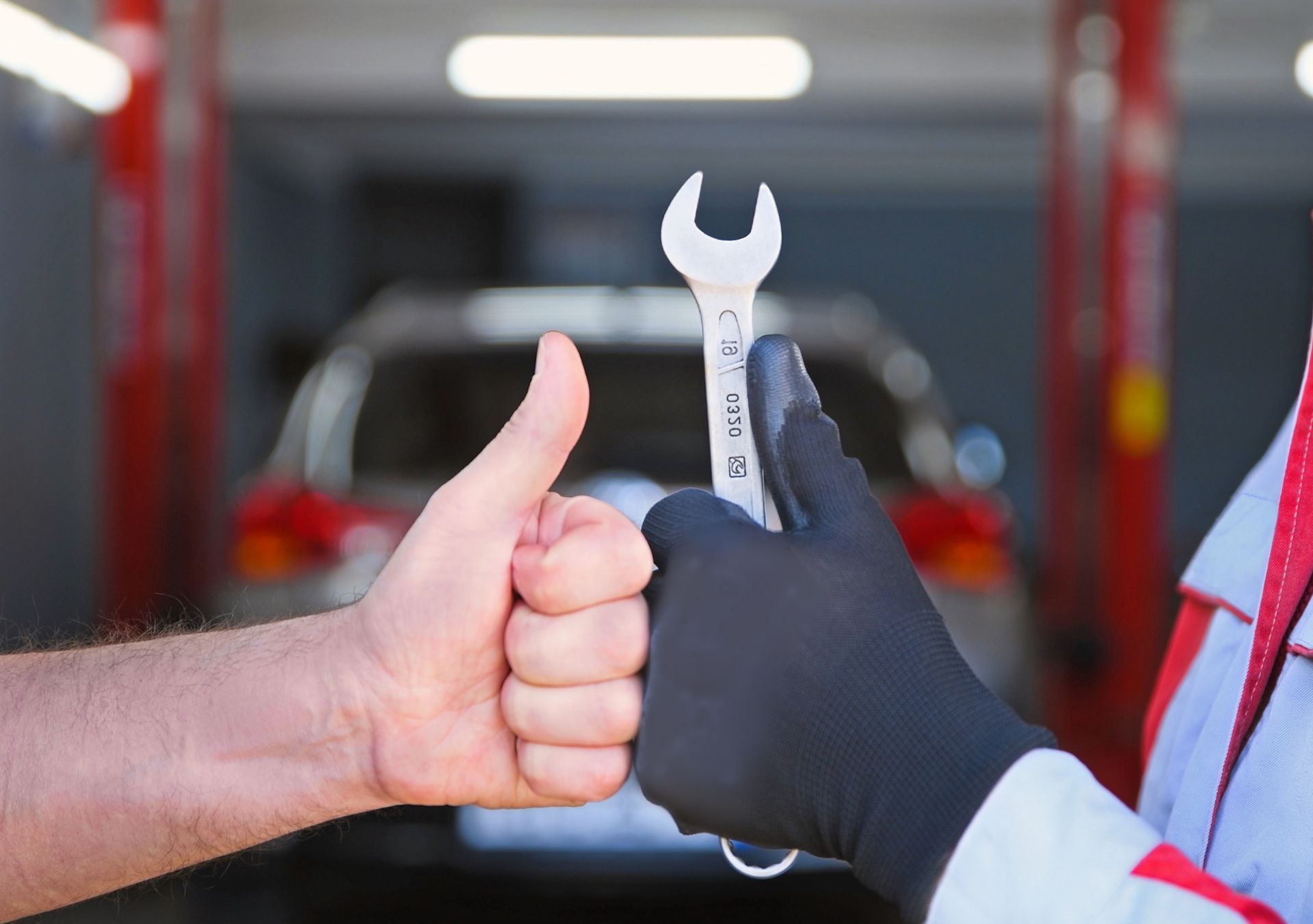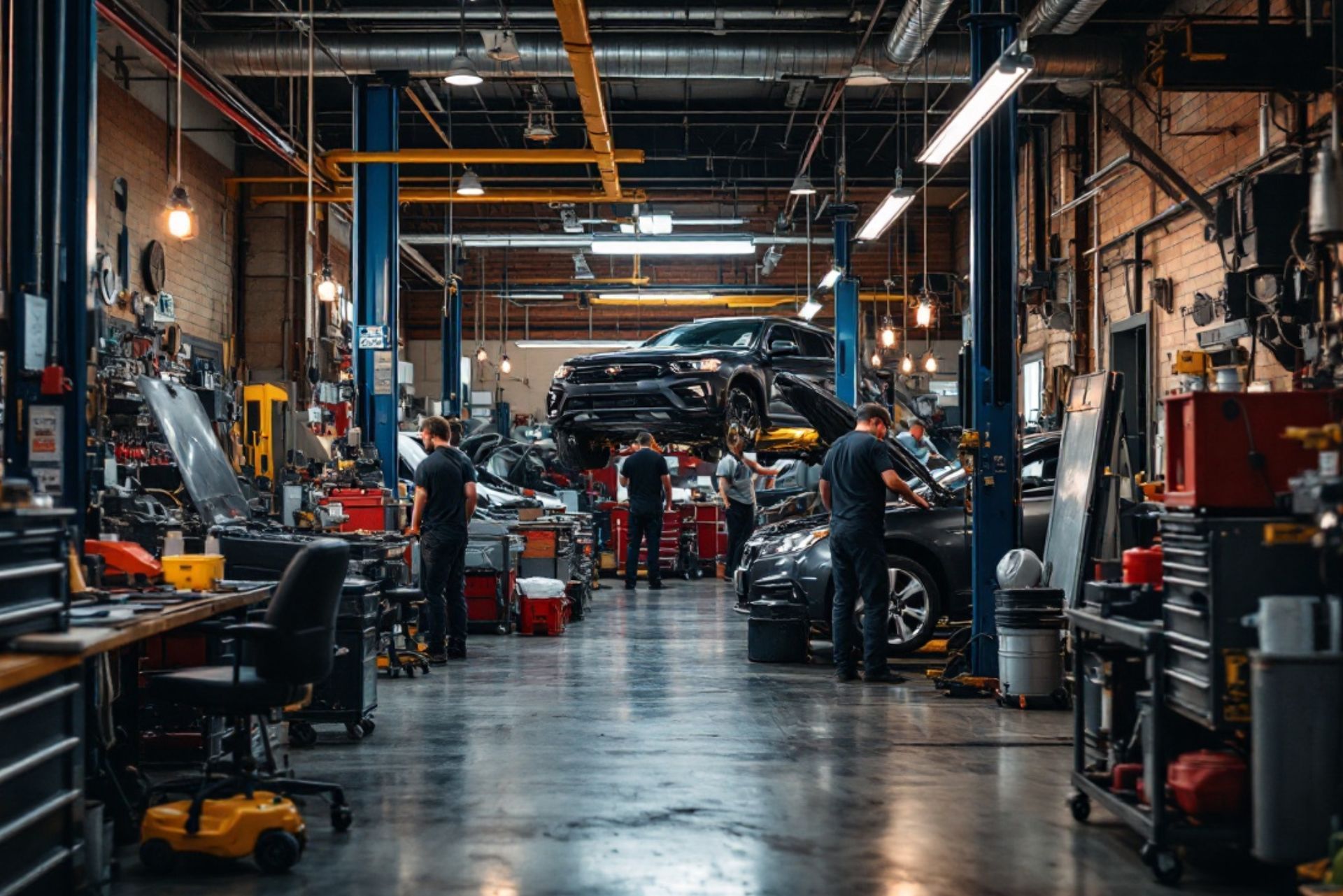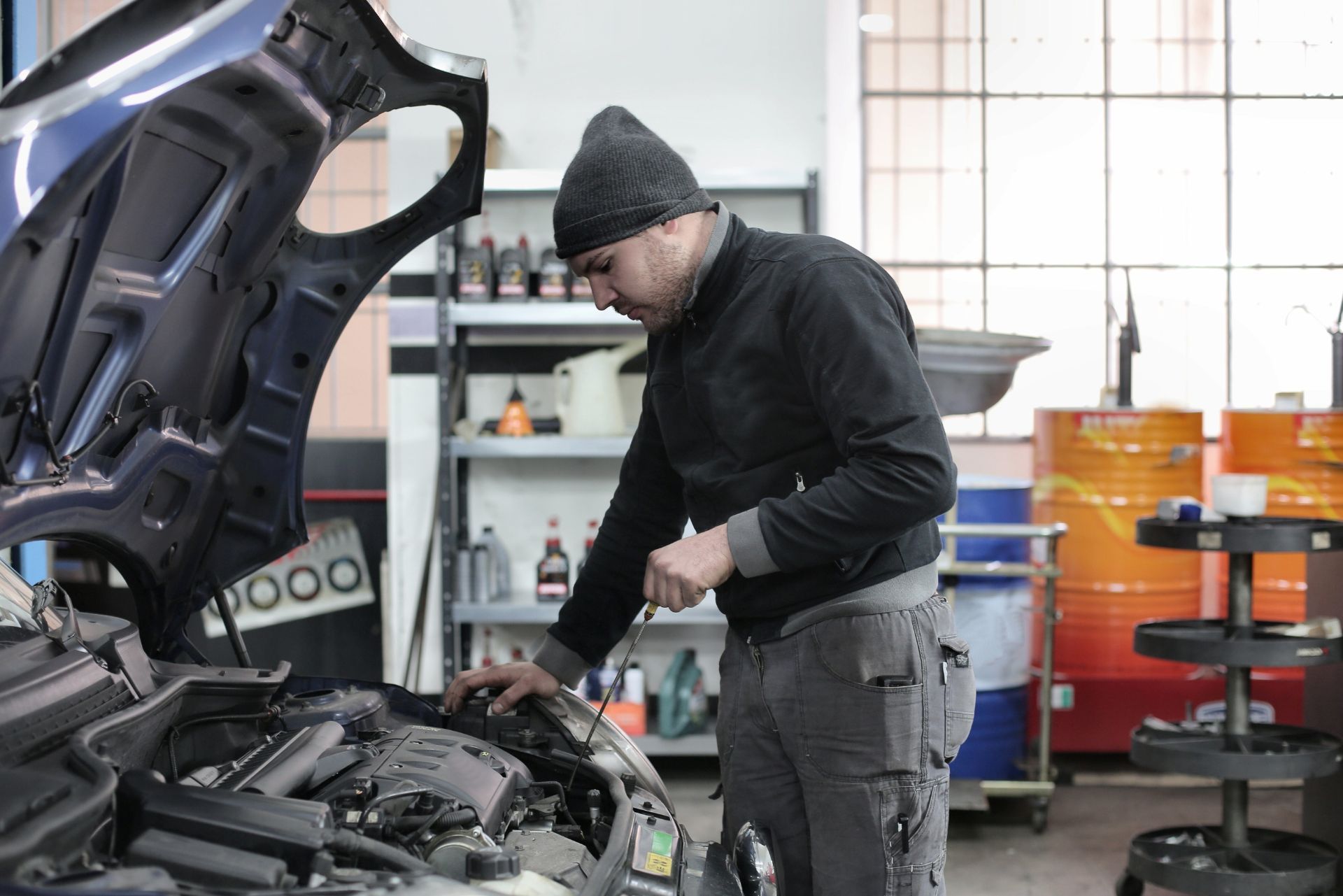Texas Auto Repair Shops Insurance

See How We're Different:
or Call Us: (214) 253-0570

Most Common Business Policies
Index
Understanding the Importance of Auto Repair Shop Insurance
Types of Insurance Coverage for Auto Repair Shops in Texas
How to Choose the Right Insurance for Your Auto Repair Shop
Cost of Auto Repair Shop Insurance in Texas
The Process of Filing an Insurance Claim
Frequently Asked Questions about Auto Repair Shop Insurance in Texas
Contact Us
In the vibrant and ever-evolving landscape of Texas auto repair shops, understanding the nuances of insurance coverage is essential for ensuring your business's longevity and success. This guide explores the critical aspects of auto repair shop insurance, including its importance, types of coverage, costs, and the process of filing claims. Whether you're a seasoned business owner or a newcomer, this article provides valuable insights to help you navigate the world of insurance tailored for auto repair shops.
Understanding the Importance of Auto Repair Shop Insurance
Insurance acts as a crucial safety net for auto repair shop owners, shielding their investments from unexpected events. It safeguards against financial losses stemming from incidents such as accidents, theft, or natural disasters. The right insurance policy not only protects physical assets but also helps maintain customer trust, ensuring that your business can continue operations, even in the face of adversity.
The Role of Insurance in Auto Repair Business
For auto repair shops, insurance plays a multifaceted role. It provides liability protection, covering claims that arise from accidents or damages caused in the course of business operations. This includes customer injuries or property damage that may occur within the shop premises. In addition, having comprehensive insurance coverage can enhance a shop’s credibility and attractiveness to potential clients, knowing they are protected.
Moreover, insurance can assist with business continuity. In the aftermath of a disaster, such as a fire or flood, business interruption insurance helps cover lost income and ongoing expenses, enabling the shop to rebuild and resume normal operations without significant financial strain. This aspect is particularly vital for small businesses, where cash flow can be severely impacted by unforeseen disruptions. By having a solid insurance plan in place, shop owners can navigate these challenges with greater confidence, allowing them to focus on their core services rather than the uncertainties of financial recovery.
Key Risks Covered by Auto Repair Shop Insurance
Auto repair shop insurance typically covers various key risks, including general liability, garage liability, and workers' compensation. These coverages address even highly specific situations such as equipment failure, vehicle damage, and employee injuries, providing comprehensive protection for the business's operations.
By securing insurance that caters specifically to the automotive industry, shop owners can mitigate the financial impact of these risks and focus on serving their customers, knowing that the unexpected is covered. Additionally, specialized policies may offer coverage for tools and equipment, which are often significant investments for repair shops. This means that in the event of theft or damage, the shop can quickly replace essential tools without crippling their operational capabilities. Furthermore, some policies may also include coverage for data breaches, which is increasingly important as shops adopt more technology for customer management and vehicle diagnostics. This comprehensive approach to insurance not only protects the physical and financial assets of the business but also ensures that the shop can maintain its reputation and customer loyalty in a competitive market.

Types of Insurance Coverage for Auto Repair Shops in Texas
Choosing the right type of insurance coverage is pivotal for auto repair businesses in Texas. There are several types of policies specifically designed for the needs of auto repair shops, each covering different aspects of the business.
General Liability Insurance
This type of insurance is fundamental for any business, including auto repair shops. General liability insurance protects against claims of bodily injury, property damage, and personal injury occurring on the business premises. For example, if a customer slips and falls in the shop, this insurance would cover the medical expenses and legal fees associated with the incident. Additionally, it can also protect against claims arising from advertising injuries, such as libel or slander, which can be particularly relevant if the shop engages in marketing efforts that might unintentionally misrepresent another business or individual.
Workers Compensation Insurance
Workers' compensation insurance is often mandated by law for businesses with employees. It provides coverage for medical expenses and lost wages if an employee is injured on the job. This is particularly important in auto repair shops, where workers may be exposed to hazardous materials and heavy machinery. By having this coverage, business owners can fulfill their legal obligations while ensuring employee safety and well-being. Furthermore, a solid workers' compensation policy can also enhance employee morale, as workers feel more secure knowing they are protected in case of an accident, which can lead to increased productivity and job satisfaction.
Garage Liability Insurance
Garage liability insurance is a specialized policy that protects against damages or injuries resulting from the operation of vehicle repair and servicing. It covers incidents that occur while vehicles are in the garage, such as fire or theft. This insurance helps protect the shop from the high costs associated with these potential claims, offering peace of mind to the owner. Moreover, some policies may include coverage for customer vehicles while they are in the shop, which is crucial for maintaining trust and satisfaction among clients who leave their vehicles in the care of the shop.
Business Property Insurance
Business property insurance covers the physical assets of the auto repair shop, including tools, machinery, and the building itself. In the event of theft, fire, or other disasters, this coverage allows shop owners to replace damaged or lost property, minimizing disruption to their business operations. Investing in this coverage is crucial for safeguarding long-term assets integral to running the shop effectively. Additionally, some policies may offer coverage for business interruption, which can help replace lost income if the shop must close temporarily due to a covered event, ensuring that the financial stability of the business is maintained even during challenging times.
How to Choose the Right Insurance for Your Auto Repair Shop
Selecting the appropriate insurance coverage for your auto repair shop requires careful consideration of your unique business needs and circumstances. This process is essential in ensuring that you have adequate protection without overextending your budget.
Assessing Your Business Needs
The first step in choosing the right insurance is conducting a thorough assessment of your business's specific risks and requirements. Consider factors such as the size of your shop, the range of services offered, and the number of employees you have. Evaluate your operations to identify potential liability exposures and property risks.
This proactive approach will help you understand the types of coverage that will best protect your assets and mitigate risks. It's advisable to consult with an insurance professional who specializes in auto repair shops to gain insights into your particular situation. Additionally, consider the types of vehicles you work on and any specialized equipment you use, as these can influence your insurance needs. For instance, if you frequently handle high-value vehicles or utilize advanced diagnostic tools, you may require higher coverage limits or specific endorsements tailored to those risks.
Comparing Different Insurance Providers
Once you have identified your insurance needs, the next step is to research and compare offerings from different insurance providers. Look for insurers with a strong reputation in the automotive industry, as they will better understand the unique needs of auto repair shops. Comparing coverage limits, premiums, and exclusions will allow you to find a policy that meets your requirements without compromising on protection.
Furthermore, seek out reviews and testimonials from other auto repair shop owners to gauge the reliability and customer service of potential insurers. This information can help guide your decision and assure you that you’re selecting a trustworthy partner. Don’t hesitate to reach out to your local business community or industry associations for recommendations, as they can provide valuable insights based on their experiences. Networking with other shop owners can also lead to discussions about shared challenges and solutions, enhancing your understanding of the insurance landscape.
Understanding the Terms of the Insurance Policy
Finally, it’s crucial to thoroughly understand the terms and conditions outlined in your insurance policy. Pay close attention to coverage limits, deductibles, and any exclusions that may apply. Take the time to clarify any confusing language or terms with your insurance agent.
Being well-informed about your policy will empower you to make decisions that are aligned with your business goals. It will also help you avoid unexpected surprises when filing claims, ensuring a smoother process in times of need. Additionally, consider reviewing your policy annually or after significant changes in your business operations, such as expanding your services or acquiring new equipment. Regularly updating your insurance coverage can help ensure that you remain adequately protected as your business evolves and grows, safeguarding your investment and peace of mind.

Cost of Auto Repair Shop Insurance in Texas
The cost of insurance for auto repair shops in Texas can vary significantly based on several influencing factors. Understanding these factors can help businesses better prepare for and manage insurance expenses.
Factors Influencing the Insurance Cost
Several variables affect the cost of auto repair shop insurance, including the size of the shop, location, type of coverage, and claims history. Larger shops with more employees may face higher premiums due to increased risk exposure. Locations in urban areas might also attract higher rates due to the higher likelihood of accidents and theft.
Additionally, the specific coverage options selected will directly impact costs. Comprehensive policies offering broader coverage will typically cost more than basic plans. Your previous claims history is another critical factor; several claims in a short timeframe can signal risk to insurers, resulting in increased premiums. Furthermore, the types of services offered can also play a role; shops specializing in high-risk repairs, such as transmission work or performance modifications, may see higher rates due to the increased potential for costly claims.
Ways to Lower Your Insurance Premiums
There are several strategies auto repair shop owners can implement to lower their insurance premiums. Starting with maintaining a safe work environment can significantly decrease the likelihood of accidents and claims. Investing in safety training for employees and implementing rigorous maintenance protocols for tools and equipment can create a safer workplace.
Moreover, shopping around and comparing quotes from multiple insurance providers can yield lower premiums. Some insurers offer discounts for bundling policies or having a clean claims history, so it's wise to inquire about available discounts. Regularly reviewing your policy ensures it reflects your current business needs and risks, which can also help in finding cost-saving opportunities. Additionally, engaging in risk management practices, such as installing security systems or surveillance cameras, can not only enhance the safety of the shop but may also lead to premium reductions. Insurers often reward businesses that demonstrate a commitment to minimizing risk, making it beneficial for shop owners to take proactive measures in safeguarding their assets.
The Process of Filing an Insurance Claim
Filing an insurance claim can be a daunting process for many business owners, but understanding the steps involved can make this experience smoother and more efficient.
Steps to File an Insurance Claim
When filing a claim, the first step is to notify your insurance provider as soon as the incident occurs. Most insurers have a specific timeline within which claims must be reported. Gather all relevant documentation and evidence, such as photographs, witness statements, and police reports if applicable. This initial step is crucial, as delays in reporting can lead to complications or even denial of the claim.
Once you’ve submitted your claim, an insurance adjuster will likely be assigned to your case. It's essential to maintain prompt communication with the adjuster, providing any further information or documentation they request. Be prepared to explain the circumstances surrounding the incident in detail, as this will help the adjuster make a well-informed decision. Additionally, keep a record of all communications with your insurer, including dates, times, and the names of representatives you speak with, to ensure you have a comprehensive account of the process.
What to Expect After Filing a Claim
After a claim is filed, the insurance company will conduct a thorough investigation to determine the validity of the claim and assess the costs associated with repairs or liabilities. This process may take some time, depending on the complexity of the incident. It is advisable to stay proactive, following up regularly with the insurer to ensure a timely resolution. During this period, you may also want to consult with legal or financial advisors, especially if the claim involves significant amounts or potential liability issues.
Once the claim is approved, you will receive compensation based on the terms of your policy, minus any applicable deductibles. Understanding these processes will empower you to navigate claims more effectively in the future. Moreover, it is beneficial to familiarize yourself with your policy's coverage limits and exclusions, as this knowledge will help you set realistic expectations regarding the compensation you can receive. Additionally, consider documenting the entire claims process, as this can serve as a valuable reference for any future claims or disputes that may arise.
Frequently Asked Questions about Auto Repair Shop Insurance in Texas
Many auto repair shop owners have common questions regarding insurance. Addressing these frequently asked questions can provide further clarity on essential aspects of their insurance coverage.
Is Auto Repair Shop Insurance Mandatory in Texas?
While there is no legal requirement for auto repair shops to have insurance in Texas, it is highly advisable. Certain types of insurance, such as workers' compensation insurance, may be mandated depending on the number of employees. However, having general liability or garage liability insurance is prudent for protecting against potential claims that could jeopardize your business. Additionally, some clients may require proof of insurance before allowing work to be performed, making it not only a protective measure but also a business necessity.
What is Not Covered by Auto Repair Shop Insurance?
Most auto repair shop insurance policies come with exclusions, so it's vital to understand what is not covered. For example, intentional damage, general wear and tear of equipment, or damages stemming from business misconduct may not be covered. Reviewing policy exclusions thoroughly can help avoid surprises during a claims process. Furthermore, specialized equipment or high-value inventory may require additional coverage options, such as endorsements or separate policies, to ensure they are adequately protected against theft or damage.
How Often Should I Review My Insurance Policy?
It is essential to review your insurance policy annually or whenever there are significant changes in your business. This includes expanding operations, hiring new employees, or acquiring new equipment. Regular reviews ensure that your coverage aligns with your current needs and can provide an opportunity to analyze cost-saving adjustments. Additionally, staying informed about industry trends and changes in regulations can help you identify new risks that may necessitate adjustments to your coverage, ensuring that you are always prepared for the unexpected.
Moreover, engaging with an insurance agent who specializes in commercial policies can provide valuable insights into the nuances of your coverage. They can help you navigate the complexities of various options available, ensuring that you are not only compliant but also adequately protected against potential liabilities. This proactive approach can save you time and money in the long run, allowing you to focus on running your auto repair shop efficiently.

